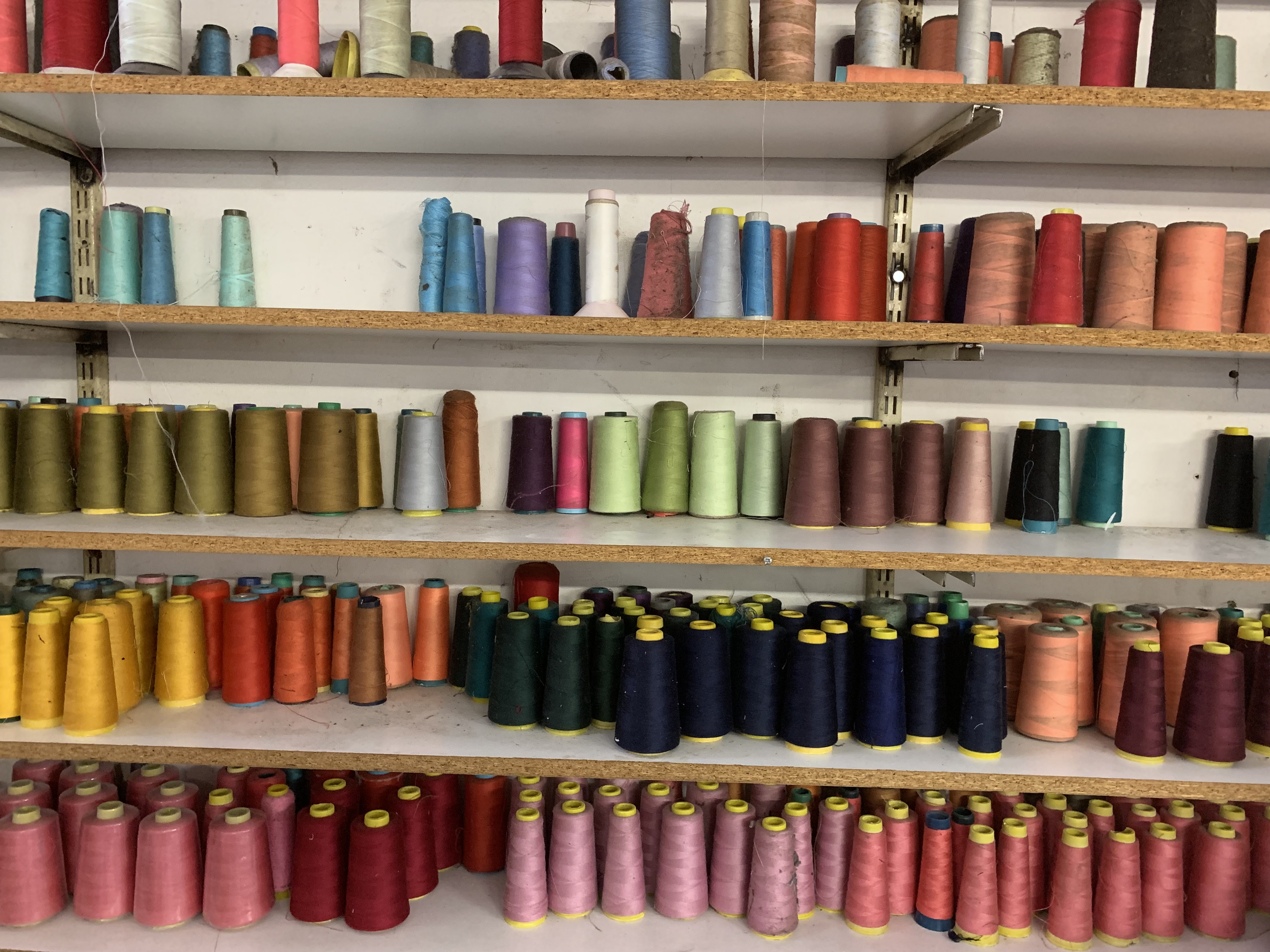OVERCOMING THE BARRIERS TO ENTRY IN THE CLOTHING AND TEXTILE INDUSTRY

The South African clothing and textile industry has long found itself vulnerable to cheap imports from Asia due to its high labour cost and the impact of strikes on the labour market. Textiles, which include all forms of clothing, are the second biggest import category from China.
For a micro-enterprise like Elihle Mgazi Primary Co-operative, fighting to succeed in this already harsh industry, may seem impossible. The 100% black youth-owned co-operative specialises in manufacturing traditional attire, tracksuits, school uniforms and garments for retail clients that outsource their cut, make and trim (CMT) function.
The micro-enterprise found support with the Jobs Fund and Project Preparation Trust of Kwa-Zulu Natal’s (PPT KZN) Informal Economy Support Programme (IESP), which offers customised business development services (BDS) to this marginalised sector. The project, built on the pilot programme's successes, provides training to micro-enterprises on running effective businesses, assistance in establishing market partnerships, access to new markets, product refinement, and access to suitable finance.
In 2013, the Elihle Mgazi Primary Co-operative emerged from Neliswa Manukuza’s passion for textiles and her desire to run her own formal business. Before registering the Co-op with four others, she sold her wares informally on the side of the road and at flea markets but always wanted to establish something more formal and structured. She found a mentor in Themba Sibiya, a textile veteran, who ran a small workshop sewing garments.
Sibiya stayed on as a mentor to the co-op after it took over his lease, as his manufacturing know-how and connections to clients put the budding enterprise in good stead. The first year proved to be a fruitful one as the co-op pulled together enough funds to buy more machines and secured clients such as retailer Fashion World, which has 165 stores nationwide.
"When you are working with CMT, money is tight. Although we have managed to create more jobs, the profit margins are really low," says Sibiya.
With CMT, each garment completed results in revenue of between R6.50 and R10.00. Clients then sell the item for R50, meaning the lion’s share of the profits go to the clients. Being a small player in the industry means they are generally price-takers. “You'll never be happy with CMT until you work on the intricate garments because they fetch a higher price," says Sibiya.
In December 2018, the Elihle Co-op secured the opportunity to join IESP and grow their business even further. Since joining the programme, the Co-op has secured a R25 000 micro-grant for inputs, new sewing machines valued at nearly R45 000 and 13 second-hand machines – all of which have improved turnaround time and production volumes significantly. The enterprise was also assisted in securing five flat sewing machines and a much-needed bakkie in December 2020 to pick up materials and deliver the finished product to clients. A few of the Co-op members have completed financial management and marketing training to ensure that they are working both in and on the business. Manukuza, herself, also attended a 12-month Quality Control course at Kingsgate, enabling her to improve the overall quality of their product.
The training and support secured through IESP has given the Co-op the confidence to pursue new markets and ideas. Their medium-term goal is to manufacture garments under their own brand and grow a customer base for school uniforms and traditional attire.
However, the Co-op has not been unscathed by the COVID-19 pandemic and subsequent nationwide lockdown. A few days before the National lockdown commenced, Fashion World cancelled its orders, and the Co-op closed its doors, amidst uncertainty about when things would go back to normal.
When the doors re-opened in June 2020, not all 65 employees returned. “Lockdown affected us a lot. To fulfil orders, you need to know you have enough operators to meet the target. Uncertainty means you can't take some projects on, because it’s just too risky," says Manukuza.
Not only is the Elihle Co-op working with half its staff complement, but they are also faced with dwindling orders from Fashion World. Previously the Co-op would work on three to five orders at a time. The fear of harsher lockdown restrictions has resulted in the clothing retailer releasing one order at a time.
Manukuza is, however, optimistic about the future of her business and its contribution to local manufacturing. The access to finance and support she has received for her business, coupled with market linkages and access to on-going mentorship, will undoubtedly help the Co-op weather the COVID storm and progress towards their brand development goals.
South Africa’s Economic Reconstruction and Recovery Plan, highlights that, amongst other interventions, a focused manufacturing programme will be implemented to improve the participation of SMMEs in the manufacturing value chain. One of the main objectives of this programme is to significantly increase township and rural enterprises' involvement in these markets. Intermediaries like the Project Preparation Trust are critical in supporting the implementation of interventions such as this one, as they bridge the gap between exclusion and meaningful participation in the economy.